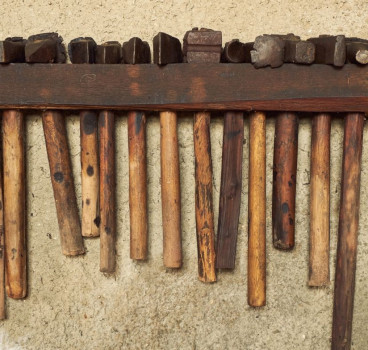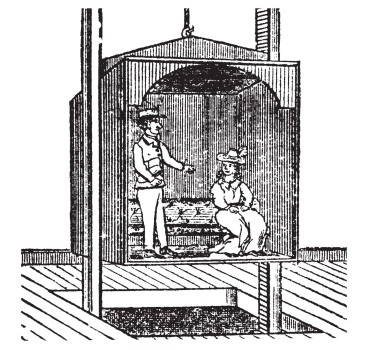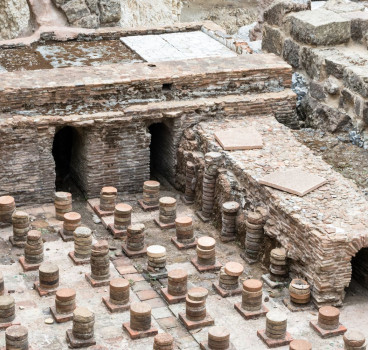From trash to treasure - a plastic bottle dreamhouse
Imagine a building – not a flimsy shack, but a nine-story marvel – constructed entirely from discarded plastic bottles. It sounds fantastical, yet in Taiwan, this eco-miracle exists. Welcome to the EcoARK, a floating "eco-village" that stands as a testament to human ingenuity and environmental responsibility.
The brainchild of architect Arthur Huang, the EcoARK wasn't just a whimsical design; it was a response to a growing problem. Taiwan, like many nations, grappled with plastic waste. Over 6 billion PET bottles were discarded annually, choking landfills and polluting waterways. Huang saw an opportunity: transform this ubiquitous waste into a sustainable structure.
So, how did a million and a half plastic bottles, destined for landfills, transform into a functional, nine-story building? Enter Polli-Brick, a revolutionary building material crafted from recycled PET bottles. Each bottle is cleaned, crushed, and heated, then moulded into interlocking bricks. These lightweight, yet surprisingly strong, bricks became the building blocks of the EcoARK.
But why bottles? Beyond reducing waste, Polli-Brick offers several advantages. It's lightweight, reducing pressure on foundations and making the EcoARK suitable for floating structures. Its insulating properties provide natural climate control, minimizing the need for energy-intensive air conditioning. The translucent material also allows for diffused natural light, creating a unique and comfortable interior.
Construction began in 2009, with volunteers meticulously assembling the Polli-Brick modules. The completed EcoARK, inaugurated in 2010, stunned the world. It boasted exhibition halls, offices, and an amphitheatre, all housed within this recycled plastic shell. But the impact went beyond aesthetics. The EcoARK generated solar power, harvested rainwater, and treated wastewater onsite, showcasing a self-sufficient, eco-friendly model.
The EcoARK wasn't just an exhibition; it was a living experiment. People worked, learned, and even held events within its walls. This real-world testing ground proved the viability of recycled plastic construction. Studies documented energy savings of up to 30% compared to conventional buildings, highlighting the EcoARK's environmental benefits.
While the EcoARK in its original form has been deconstructed, its legacy lives on. The project spurred further research and development of Polli-Brick. Schools, disaster relief shelters, and even homes are now being built using this innovative material. The "bottle brick" phenomenon is spreading, offering a sustainable alternative to traditional construction methods.
The EcoARK's story is one of hope and inspiration. It shows that creativity and resourcefulness can turn waste into wonder. It demonstrates that sustainable living isn't just a utopian dream; it's achievable through innovative design and responsible waste management. As we grapple with global environmental challenges, the EcoARK stands as a beacon, reminding us that even the most discarded materials can hold the potential for a brighter future.
Sources:
- Miniwiz Solutions: https://www.miniwiz.com/solution_detail.php
- Inhabitat: https://www.konstruktor-uroka.krippo.ru/?i=bottle-school-%C2%AB-inhabitat-%E2%80%93-green-design-innovation-architecture-ss-26DOBYIy
- Circular Taiwan Network: https://inhabitat.com/amazing-plastic-bottle-architecture-withstands-earthquakes-in-taipei/
- Architectural Digest: https://www.pinterest.com/pin/63331938480198646/
Additional Articles

Why modern builders still use tools invented thousands of years ago
Walk onto a modern construction site and you will see plenty of laser levels, drones, tablets and power tools. Yet look a little closer and something unexpected becomes clear. Alongside all this...
Read moreThe elevator that changed the world when Elisha Otis cut the rope
Today, stepping into a lift is one of the most routine acts of modern life. We press a button, glance at the floor indicator, and trust, almost without thinking. that a metal box will safely carry us...
Read more

How the Romans invented central heating
Central heating feels like a modern convenience, yet its core principles were mastered nearly two thousand years ago. Long before boilers, radiators and underfloor heating systems, the Romans...
Read more